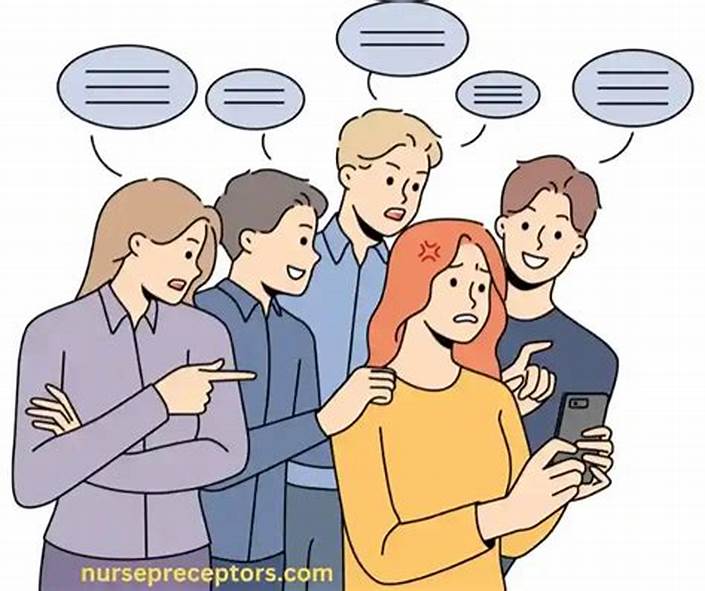For Students
Peer Pressure
Admin Sep 11, 2024 05:03 PM

TAGS
PEER PRESSURE AND LIVES
Peer pressure refers to the influence exerted by a group of people—typically those of similar age, social status, or interests—on an individual to conform to the group's behaviors, attitudes, or values. This phenomenon is a common social dynamic and can be observed in various settings such as schools, workplaces, and social circles.
Peer pressure operates on the principle that individuals often seek acceptance and belonging within their social groups. As a result, they may feel compelled to align their actions or beliefs with those of the group, even if it contradicts their own values or better judgment. This influence can manifest in both overt and subtle ways. For example, friends might directly encourage someone to participate in certain activities, or it might be more indirect, such as feeling an unspoken expectation to conform due to the group's behavior. The effects of peer pressure can be positive or negative. Positive peer pressure can motivate individuals to adopt beneficial behaviors or habits, such as engaging in academic pursuits, participating in community service, or maintaining a healthy lifestyle. On the other hand, negative peer pressure can lead individuals to engage in risky or harmful behaviors, like experimenting with drugs, skipping school, or engaging in delinquent activities.
Let's delve deeper into each point regarding how peer pressure impacts today’s students and their personal lives.
1. Social Media Influence
Social media platforms have revolutionized how students interact and perceive their social worlds. These platforms are highly visual and often highlight idealized versions of people's lives. Students are frequently exposed to images and posts showcasing seemingly perfect lifestyles, fashion, and achievements.
Idealized Images The pressure to appear as glamorous or successful as one's peers can be overwhelming. Many students feel compelled to curate their own social media profiles to match these idealized standards, which can lead to issues such as body dissatisfaction or unhealthy self-comparison.
Validation and Approval Social media also fosters a culture of validation through likes, comments, and shares. The need for approval from peers can drive students to engage in behaviors or share content simply to gain social validation, rather than for personal satisfaction or authenticity.
Cyber bullying The anonymity and reach of social media can sometimes exacerbate peer pressure, leading to cyberbullying or online harassment. Students might feel pressured to conform to certain norms or face ridicule and exclusion online.
2. Academic and Extracurricular Pressures
The competitive nature of academic and extracurricular environments has intensified peer pressure among students.
Academic Achievement In many school environments, there is immense pressure to excel academically. Students might feel the need to outperform their peers in grades, standardized tests, or college admissions, often driven by comparisons and competitive attitudes within their social circles.
Extracurricular Involvement Participation in sports, clubs, or other extracurricular activities is also influenced by peer expectations. Students may join activities to fit in or maintain their social status, rather than pursuing genuine interests, which can lead to stress and burnout.
Career Expectations There can be pressure to follow certain career paths or achieve specific milestones based on what is perceived as successful within their peer group. This can overshadow personal aspirations and lead to dissatisfaction.
3. Social Behavior
Peer pressure heavily influences students’ social behaviors and choices, often leading to risky or unhealthy actions.
Substance Abuse The desire to fit in or gain acceptance can drive students to experiment with alcohol, drugs, or tobacco, even if they are aware of the risks involved.
Skipping School Some students may skip school or engage in truancy to avoid being ostracized or to participate in activities they believe will enhance their social status.
Engaging in Harmful Trends Trends or challenges that gain popularity on social media or within peer groups can sometimes encourage risky behaviors, such as dangerous stunts or self-destructive actions.
4. Identity and Self-Esteem
The pressure to conform can have significant effects on a student’s self-esteem and sense of identity.
Suppression of Authenticity In an effort to fit in, students may suppress their true interests, values, or identities. This can lead to a lack of self-fulfillment and confusion about one's own preferences and beliefs.
Self-Esteem Issues Constant comparison with peers and the need for external validation can erode self-esteem. Students might feel inadequate or insecure if they perceive themselves as falling short of their peers’ achievements or appearances.
5. Mental Health
The cumulative impact of these pressures can have serious mental health implications.
Stress and Anxiety The constant pressure to meet expectations and conform to peer norms can lead to chronic stress and anxiety. Students may experience feelings of inadequacy, fear of failure, and constant worry about their social standing.
Depression Prolonged exposure to negative peer pressure, especially when combined with social comparison and lack of support, can contribute to depressive symptoms. Feelings of isolation or not measuring up to peers can deepen these issues.
Mitigating the Impact:
Developing Resilience Building resilience through positive coping strategies and self-awareness can help students handle peer pressure more effectively.
Open Communication Parents, educators, and mentors should foster open lines of communication, encouraging students to express their feelings and concerns without fear of judgment.
Promoting Authenticity Encouraging students to pursue their own interests and values, rather than conforming to peer expectations, can help them maintain a sense of self and personal fulfilment.
By addressing these aspects, we can better support students in navigating the complexities of peer pressure in today's interconnected world.
Search
Latest Blogs

Exploring Opportunities in Emerging Engineering field
Admin
Dec 14, 2024 05:18 PM

Navigating College Majors
Admin
Sep 25, 2024 04:04 PM

Tools for Measuring Strengths For Career
Admin
Sep 25, 2024 03:27 PM
Interested in getting latest updates?
SUBSCRIBE


















